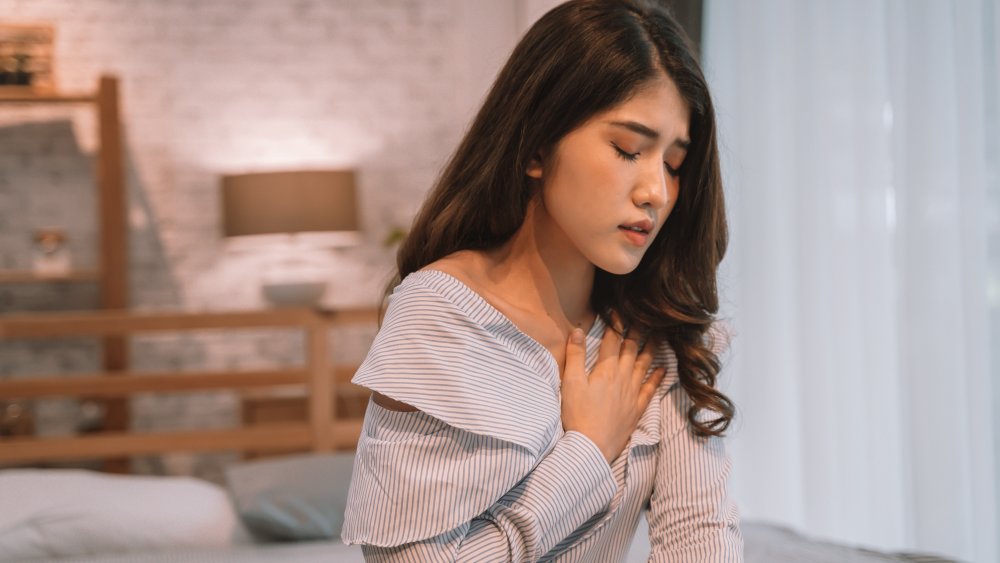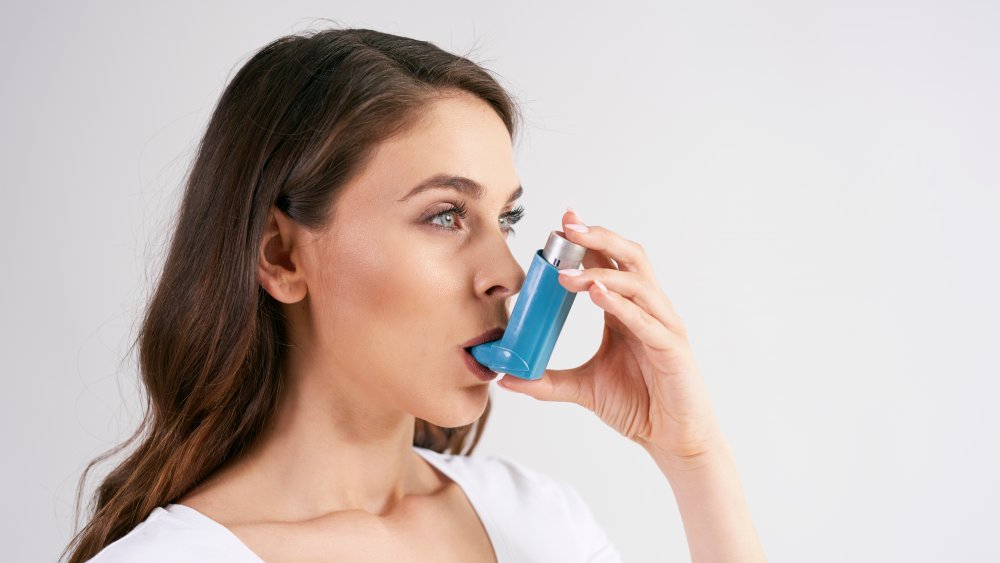The First Thing You Should Do When You Have Trouble Breathing
The feeling of being unable to fill your lungs is frightening. So much so, that anxiety can actually make the condition worse as it constricts the muscles that control breathing. If you find yourself feeling short of breath, it's important to think about what might be contributing to the condition — and whether or not it's time to call 911.
Breathing can be affected by everything from allergies and asthma to exercise to illness or injury. If someone has been exerting themselves through exercise or hard work, their breath may return to normal within a few minutes of stopping the activity. But if breathing issues come on quickly, or there is an illness or injury present, it's almost always a medical emergency, according to the National Institute of Health.
When someone is having difficulty getting their breath (and they haven't just scampered up the stairs), the first thing NIH recommends that you do is to call 911. Next, loosen tight clothing and take any medication prescribed for conditions like asthma, a cold, or respiratory infection. If there is chest pain present, dizziness, sweating, pain spreading into the arms, neck, jaw, or back, these could be symptoms of a heart attack and also requires a call to 911, according to Parkridge Health.
There are some things you can try at home to help ease breathing difficulties
If breathing problems are not an emergency, there are things that can be done at home to try and alleviate discomfort. Healthline recommends trying a posture of sitting forward with elbows on knees or sitting and leaning forward onto a table. You can also try standing with your back to a wall leaning slightly forward with your hands on your thighs, or standing and using the arms to support yourself on a table.
Pursed-lip breathing, or breathing in through your nose and out through pursed lips will slow the pace of breathing and release air in the lungs. This is a good exercise if you find you can't catch your breath following exertion or with anxiety.
If breathing problems are caused by allergies or asthma, it's important to avoid triggers that sets it off, according to WebMD. Use a face mask when working in the yard or doing housework, reduce exposure to pet dander, and avoid being outdoors when pollen counts are high.
If in doubt, and breathing problems are severe, call your doctor for an appointment or visit the nearest emergency room to ease your mind.


